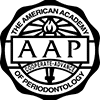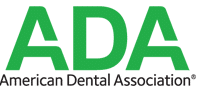Vitamin D deficiency is a worldwide public health problem and epidemiological studies today show that approximately 70% of the population is deficient. Sunlight exposure is a major source of vitamin D, with only few foods that naturally contain sufficient levels. Lack of sunlight in the northern U.S. (especially during winter) and increasing number of desk-related/indoor jobs has resulted in further deficient state. Osteoporosis and menopausal women are most frequently related to vitamin D deficiency. Recent studies have linked vitamin D deficiency to an increase in dental implant failure along with other dental-related wound healing complications. Mangano, et al* published a study in 2019 of nearly 2000 implants, where early implant failures were reported in association with other known complications, in particular smoking and a history of generalized periodontal disease. In this study, the overall implant failure rate was 3.9 %. Heavy smoking (at least 15 cigarettes a day) was associated with an approximately 50% increase (6.1%) in early implant failure. History of generalized periodontal disease was associated with an approximately 50% (6.1%) dental implant failure rate. Severely deficient vitamin D levels (< 10 ng/mL serum level) showed approximately 300% (11.1%) implant failure rate. This and other studies have concluded that further research, adequate testing, and supplementation prior to dental implant surgery and maintenance may be required.Future newsletter articles will review:• Vitamin D’s role in wound healing and other dental complications• Testing for Vitamin D levels• Optimizing and Supplementation of Vitamin D

 Dr. Sakamoto
Dr. Sakamoto
 Dr. Mannava
Dr. Mannava
 Our Team
Our Team
 FIRST VISIT
FIRST VISIT
 PATIENT FORMS
PATIENT FORMS
 DENTAL INSURANCE
DENTAL INSURANCE
 POST-OP INSTRUCTIONS
POST-OP INSTRUCTIONS





